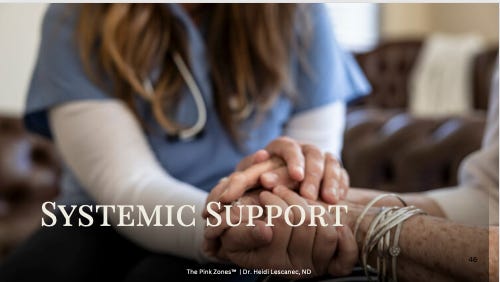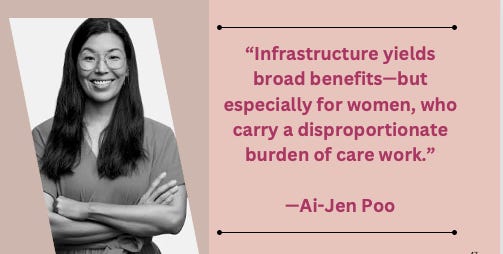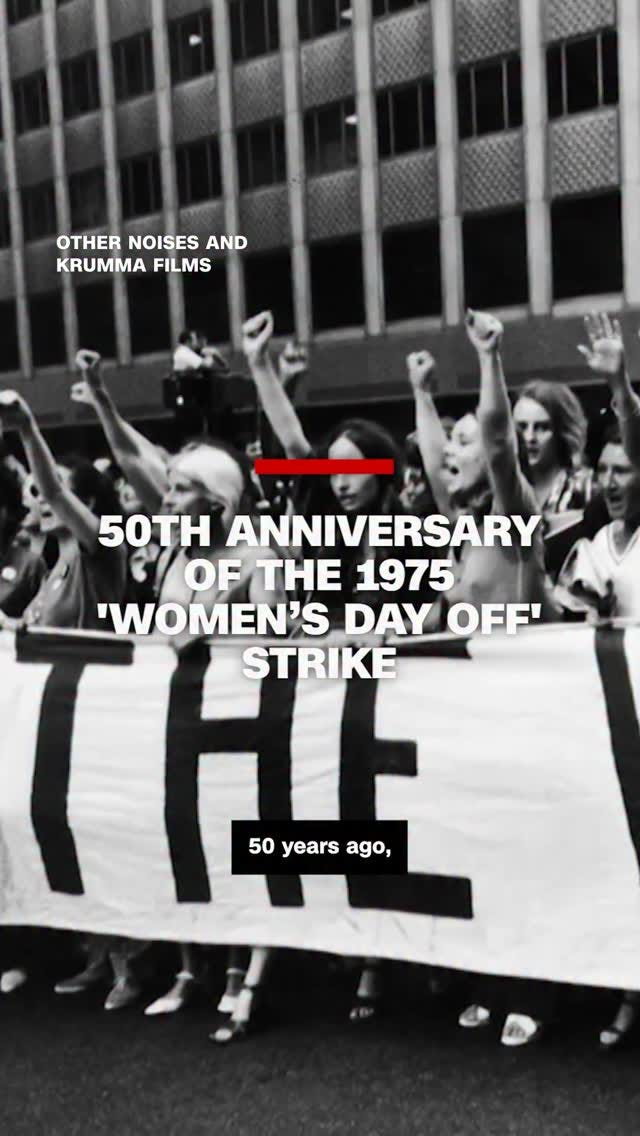Do I have to move to Iceland?
Systemic Support: Why Thriving Isn’t Just Personal
“Other countries have social safety nets. The U.S. has women.”
— Jessica Calarco, Holding It Together
Sociologist Jessica Calarco’s observation lands like a truth we’ve all felt but haven’t named.
In North America, women are the safety net. They hold together families, workplaces, and communities, sometimes at the cost of their own rest, health, and longevity.
And yet, we live in a culture that adores the story of self-reliance and feverishly promotes self-care as the cure for most everything.
If you’re struggling, the assumption goes, you just need to commit harder, optimize your habits, manifest, meditate, or cold plunge your way to solid ground.
But this belief—that individuals hold ultimate control over their lives—has troubling implications. It masks the truth that health, freedom, and rest aren’t distributed evenly—they’re shaped by the systems we live within. Yes, we do have agency, but our health, our bodies and minds don’t exist in a vacuum. Wellness isn’t simply a personal practice; it’s a social design.
The Longevity Load: Systemic Constraints
Across a lifetime, women accumulate what I call the Longevity Load—the invisible weight of systemic constraints on time, money, safety, and freedom.
From wage gaps, underfunded maternal care, and laws that restrict bodily autonomy, these are not personal shortcomings. They are structural limitations that determine whether a woman can access true wellness— rest, movement, nature, creative expression, and connection.
Here are some factors that limit access:
Time: Women shoulder the majority of unpaid caregiving.
In the U.S., women provide more unpaid care than in any other wealthy nation and report the highest stress from doing so (Commonwealth Fund, 2024). In Canada, women caregivers spend a median of 10 hours per week caring for dependents, compared to 6 hours for men (Statistics Canada, 2022).
Money: Gender pay gaps and the high cost of care limit access to health-promoting resources.
Safety: Chronic stress from insecurity, discrimination, threat of/ or exposure to violence has measurable physiological effects.
Freedom: Legal and economic barriers restrict autonomy over health and life choices.
These constraints don’t just erode well-being—they shape life expectancy, mental health, and our capacity to thrive.
When Self-Care Isn’t Enough
In earlier essays, I’ve written about caregiving for my uncle and my mum, both in their eighties, both living with dementia, in different locations. There’s deep tenderness and heart expansion in that role, but also frustration and exhaustion. It’s the weight of love and massive admin needs meeting the limits of my human body/mind, trying to hold a job, and a self together. I am the only family member left.
When I admit I’m overwhelmed, people often rush to suggest that I must add in more self-care—as if a moisturizing facial was a fire extinguisher I forgot to grab.
Bless their hearts; these folks don’t know I was dubbed the queen of self-care twenty years ago, and the crown still fits.
The truth is, life can be hard.
Sometimes loads simply outweighs our capacity to carry it solo.
Sometimes we face systemic constraints.
And in our individualist, nuclear-family-oriented society, we’re often simply but profoundly under-supported.
We don’t hit our limits because we skipped a cold plunge or gratitude practice.
We hit them because humans all have a resilience ceiling. It’s just that we live in systems that ask us to push past them without rest or relief.
I feel like there is a great immaturity in our culture about this. It may sound harsh, but I want to help us grow up —collectively. It would help us both.
The Pink Zones: Systemic Support for Real Wellness
In the Pink Zones, women have access to time, safety, money, healthcare, and equity—recognizing that wellness is shaped by structure, not just self-discipline.
For women and female-presenting people, these factors are often the greatest determinants of health and healing. Thriving isn’t a mindset; it’s an outcome of design.
The Systemic Support Pillar of the Pink Zones calls for a shift from blaming individuals to building systems of care: policies that provide paid leave and childcare, legal protections that safeguard equity, and cultures that value care work as the foundation of community health.
Learning from Care Infrastructure
Ai-Jen Poo, nationally recognized labour leader and co-founder of the National Domestic Workers Alliance and Caring Across Generations, has spent decades fighting for paid family leave, elder-care infrastructure, and dignity for caregivers.
Recently, she spoke beautifully about this on Kate Bowler’s podcast, in an episode titled America’s Caregiving Crisis, where she reflects on what it would mean to build a society that truly values care.
Ai- Jen’s work makes visible the invisible labour that holds families—and our health systems—together.
She teaches us that if we want a healthy society, we must invest in care: policies that support time off, continuity of care, and economic protections for those giving and receiving it.
These are not “extras.” They are social determinants of health.
Really, do we need to move to Iceland?
In Holding It Together, Jessica Calarco draws a striking comparison between the U.S. and Iceland.
Just over a week ago, Iceland marked the 50th anniversary of the historic 1975 women’s strike — when 90% of Icelandic women walked off their jobs and out of their homes to demand equal rights. The country stopped for a day, and history shifted.
Watch this short clip from the 50th anniversary celebration ↓
What followed was transformative: sweeping policy reforms that redefined work, family life, and care.
By 2023, Iceland ranked the best country in the world for women—while the United States stood at forty-third. T
This contrast isn’t just statistical. The gap between them shows what’s possible when a society refuses to individualize struggle and instead insists on shared responsibility and structural change.
A Union of Care
Calarco argues that lasting progress can’t come from individual self-help or personal grit. The solution, she says, must be collective, built through systems and relationships that hold us all.
Her proposal—what she calls “unions of care”—imagines a broad coalition connecting paid and unpaid caregivers, alongside those receiving care. This network would advocate for policies that value caregiving as vital work and elevate it to its rightful social and economic importance.
Imagine a world where care, not achievement, is the truest measure of contribution.
Where giving and receiving care are seen as the shared infrastructure of a healthy society.
Some might hesitate to join such a movement, but the truth is: we’re already connected. The question is whether we’ll consciously choose to organize the chaos or just keep pretending that burnout is an inevitable fact of life for some women.
Where good things are happening
And yes, there’s reason for hope. Here is what we know:
Social-protection programs designed with women in mind improve both physical and mental health outcomes (UN Women, 2022).
Community caregiving networks, mutual-aid models, and inclusive workplace policies reduce stress and improve longevity (BMC Public Health, 2022).
These findings echo what many of us already know intuitively: when women are supported, whole communities thrive.
Thriving isn’t about doing more; it’s about being supported more.
It’s about systems that honour care as infrastructure—just as essential as roads or hospitals or Wi-Fi.
So no, we don’t have to move to Iceland.
Although honestly, the fjords, the hot springs and cold plunges sound tempting.
The Pink Zones remind us that wellness is never isolated. It’s not just personal habits.
It’s relational, systemic, and deeply political.
Because when we build societies that care for women, we build societies that care for everyone.
P.S. Forget the fjords — we’re building Pink Zones right here!
Join the Thriving in Pink Zones Podcast Club for good chats, shared wisdom, and zero travel logistics.
💗 Free for paid subscribers! Sign up here
WHAT IS A PODCAST CLUB?
It’s just like a book club, but with podcasts.
Each month, we listen to two thought-provoking podcast episodes on themes that matter for women in midlife and beyond: vitality, meaning, belonging, resilience, and creativity.
Then we gather, not for small talk, but for meaningful conversation that helps us integrate these insights into daily life.
You’ll listen at your own pace, then join on Zoom for rich conversation, shared wisdom, and practical takeaways.
🗓️ 2025 NEXT 2 PODCAST CLUB ZOOMS:
Thursday, November 13
Thursday, December 11
Time: 5:30 PM PT / 8:30 PM ET (1-hour sessions)
Where: Zoom (link provided upon registration)














I feel very ‘seen’ by this stack. Thank you Dr Heidi. We clearly have much more work to do on gender equality. Is that going to fall on women too?
What a great vision for our world!